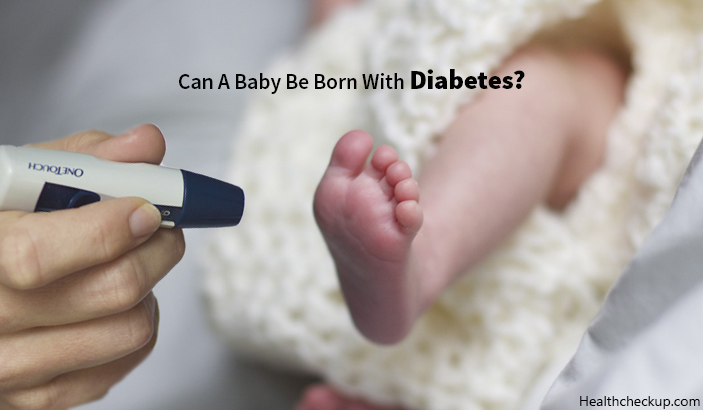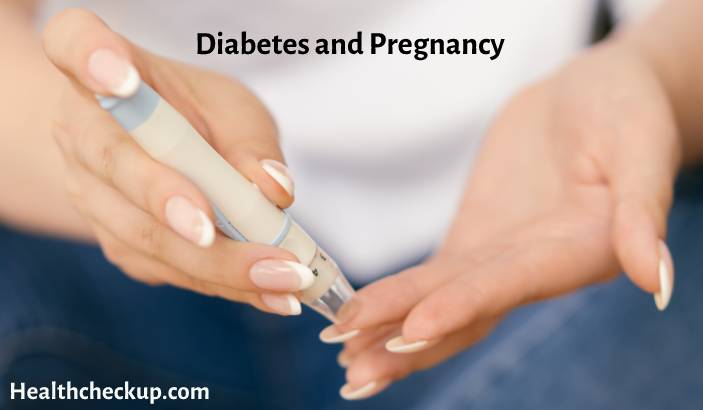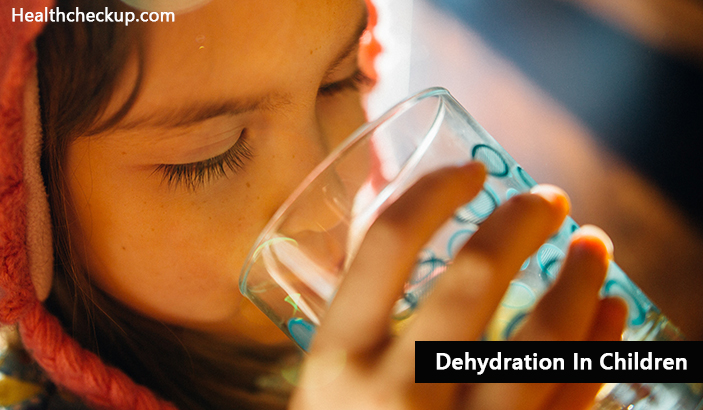With the increasing levels of stress accompanied by the sedentary lifestyle human beings follow, diabetes has almost become a household name. Diabetes, which is medically referred to as Diabetes Mellitus, is a metabolic disorder where an individual has high levels of glucose or sugar in their blood. This high blood glucose levels can either be due to inadequate production of insulin in the human body or because the cells of the body do not respond appropriately to the insulin available within the body.
Though Diabetes has become quite common among the adults, can it also affect children? Statistics reveal that a lot of children are either diabetic or are prone to become diabetic and such numbers of children are steeply rising. The question is how are the children getting affected? can a baby be born with diabetes?
Gestational Diabetes
Diabetes is basically the inability of the body to regulate the sugar levels in the body. There have been various cases where pregnant mothers have been detected with high blood sugar levels. Diabetes among pregnant women can be basically of two types of Gestational Diabetes (where diabetes have been first detected during pregnancy) and pre-gestational diabetes (the woman has diabetes even before conceiving). Diabetes among pregnant women can endanger both the unborn fetus and the mother with a lot of complications.
Babies born to diabetic mothers are exposed to high blood sugar levels. Some of the effects of gestational diabetes on baby include the increased risk of nerve injuries and other trauma during childbirth. Usually, such babies can affect the baby during pregnancy, at the time of birth, and after birth. Infant of the diabetic mother are usually large babies and can suffer low blood sugar or hypoglycemia just after birth. They can further have difficulty in breathing due to less matured lungs, learning disabilities, a high count of red blood cells (polycythemia), and high levels of bilirubin (newborn jaundice). Thus, diabetes needs to be controlled well during pregnancy in order to avoid such problems.
[Read – Gestational Diabetes Signs During Pregnancy]
Can a Baby be Born with Diabetes?
Mostly, diabetes is acquired at a later stage, though there are a few cases where a child is born with diabetes. As already mentioned, diabetes is basically the inability of the body to regulate the levels of blood sugar. This regulation is primarily done by the pancreas since this is the organ which produces insulin. The very few children who are born with diabetes usually suffer from type 1 diabetes which is also referred to as juvenile diabetes. This form of diabetes is developed during childhood.
Children suffering from juvenile diabetes usually secrete inadequate levels of insulin and their pancreas is ineffective in regulating the blood sugar levels due to insufficient secretion of insulin. This insufficient secretion of insulin results in high blood sugar levels which can gradually cause damage to various other organs apart from further non-cooperating with the body to use the sugar present in the blood to transform into energy for the human body.
Infant Diabetes Diagnosis
Infants are quite delicate. Their organs are not yet developed completely. Therefore, the diagnosis can sometimes be a challenging task. However, the symptoms of diabetes in infants develop almost immediately i.e., within weeks of their birth. Some of the common symptoms of diabetes among infants include
- Frequent urination
- Increased thirst
- Loss of weight
- Extreme hunger
- Fruity smelling breath
- Fatigue
- Irritability, mood, or behavioural changes which affects the performance at school
- Yeast infection which might result in diaper rash
- Blurred vision
[Read – 5 Fruits To Avoid During Pregnancy If You Have Diabetes]
Infants complaining or showing such signs and symptoms are often confused with other more common illnesses in this age group by the guardians, parents, and other close relatives. In fact, it is suggested that whenever any physician examines an ill-appearing dehydrated infant, the physician should, without any obvious cause for the dehydration, ask for a quick screening of the infant’s urine, especially for glucose and ketones. Diagnosis of diabetes becomes a problem when the infant only has hyperglycemia or ketonuria.
In fact, though the diagnosis of diabetes in the infant is made by the physician, the more difficult and complex phase of managing diabetes in infants begin. Management of diabetes in infants involves complex procedures such as administering small doses of insulin, regularly monitoring blood glucose levels, complementing the insulin administration with proper feedings, and preventing hypoglycemia adequately. Hypoglycemia increases the potential risk of brain damage with among infants.
Understanding and accepting the facts that a baby can be born with diabetes would help the parent and the guardian to manage the potential risks and dangers associated with the disease better.
Medically Reviewed By

Samarpita is a dedicated freelance writer with avid experience in the space of health, she specializes in topics related to diet, nutrition, immune-related diseases, detection and prevention of diseases and taking a natural route to cure such diseases.








